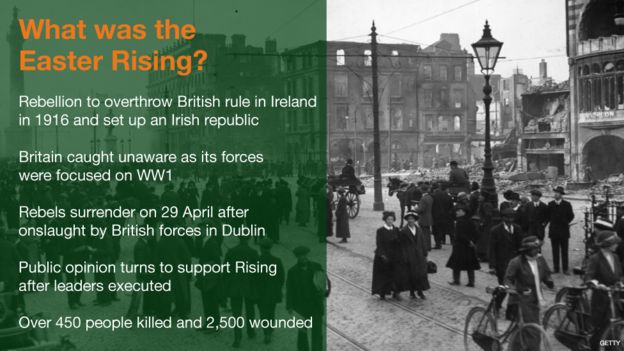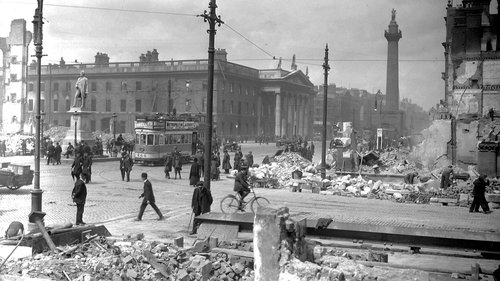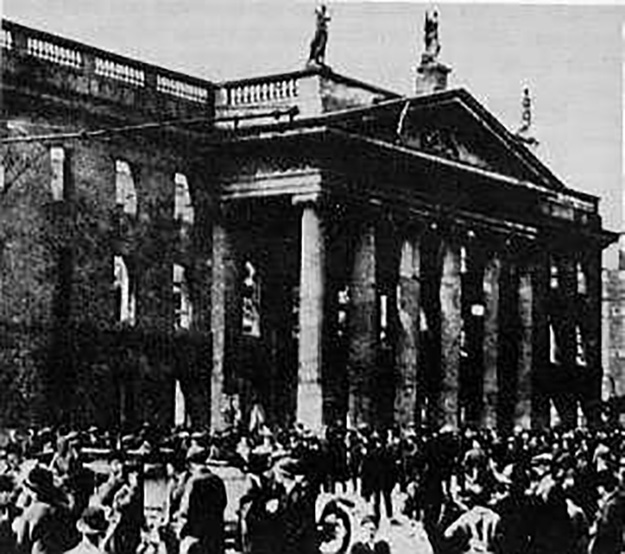I have often been accused of seeing the world through royal-colored glasses. As a history major in college, I, more often than not, gravitated toward the study of British history and it’s colonialism around the world. As the head of my church, the UK, and the Commonwealth around the world, Queen Elizabeth II has always commanded my deepest respect. Needless to say, the people of the Republic of Ireland feel quite differently.
The Republic of Ireland is a place where royals do not belong. It is a country built on the blood and sacrifice of Irish men and women who wanted to offer future generations their very best chance. No tiaras are for sale, nor t-shirts that say, “Irish Princess.” This is a populist country, born out of revolution, and it’s people hold a great disdain for the English.

As an Episcopalian, raised on fairytales and Princess Diana, I found the tragedies of the Irish Republic hard to reconcile with my internalized beliefs. Raised by Anglophiles, and indoctrinated with love of Queen and country, I found myself smacked in the face with a very opposing point of view. Our host explained to us that the British taxed the amount of sunlight used by the Irish. Additionally, we learned how the British cut down the majority of Ireland’s trees, shipping them abroad. Adding insult to injury, the British forbade the Irish from building their own homes out of wood. When the potato famine occurred, the British systematically starved the Irish by refusing to distribute food sent in aid. Heavily taxed, starving, and with their natural resources pummeled, the Irish radically grew in their contempt toward the British.
To put it simply, when the synthesis, (the British Empire) collided with the antithesis, (the Irish people) revolution occurred in the form of the Easter rebellion. I learned of this rebellion during what is called the GPO (General Post Office) tour. With the British preoccupied during WWI, and the idea of Irish “Home Rule,” tabled at the time, a small group of rebels took over the city of Dublin. The General Post office served as their headquarters, and success appeared within their grasp, until the British came in with reinforcements, ending the rebellion. A brutal execution by firing squad awaited the ringleaders of this event, turning moderate Irish nearly overnight into radicalized ones.
The plight of the rebels is emotional and heartbreaking. As an individual, I felt great understanding and pain for them. As a woman, I felt great pride in the females who took part, but as an Anglophile, I understood the need of the British to put down the rebellion. The sacrifices made by the rebels put the idea of “Home Rule” to rest, and made the idea of a republic the only acceptable solution. In the end, the rebels won, and the majority of Ireland today is a republic, free from the far-reaching tentacles of the British Empire.

As I learned of the terrible treatment of the British toward the Irish, I could not help but feel like a colonial interloper, traipsing through the halls of revolution. My host even commented that I seemed very colonial, and that perhaps such tendencies literally existed in my family’s blood. As I listened and learned about the Easter Rebellion, I also could not help but compare their treatment to that of franchises by their corporate offices. Many times, the high fees, extreme regulation, and lack of local control, can lead to a revolution of sorts. Many businesses, to whom I provide marketing services, began as franchises that ultimately claimed their independence. I have actually assisted various former franchises, in creating their own unique corporate identity. But is this not the will of man-to be free and in control of one’s own destiny?
As an American of British descent, and as a member of the Anglican communion around the world, I hold great love for Great Britain and it’s royal family. This will not change. However, as a woman and as an individual, I understand and respect the decisions made by the revolutionaries who spearheaded the Easter Rebellion. I feel I can understand and respect what occurred without betraying or sacrificing my own sense of self. I love Ireland; I love it’s people, and I also love Great Britain. However, the plight of the Irish is still very real and ongoing in its northern dominion, and only time will tell it’s final result. Nevertheless, I feel compelled to proclaim, ‘God save the Queen!”


